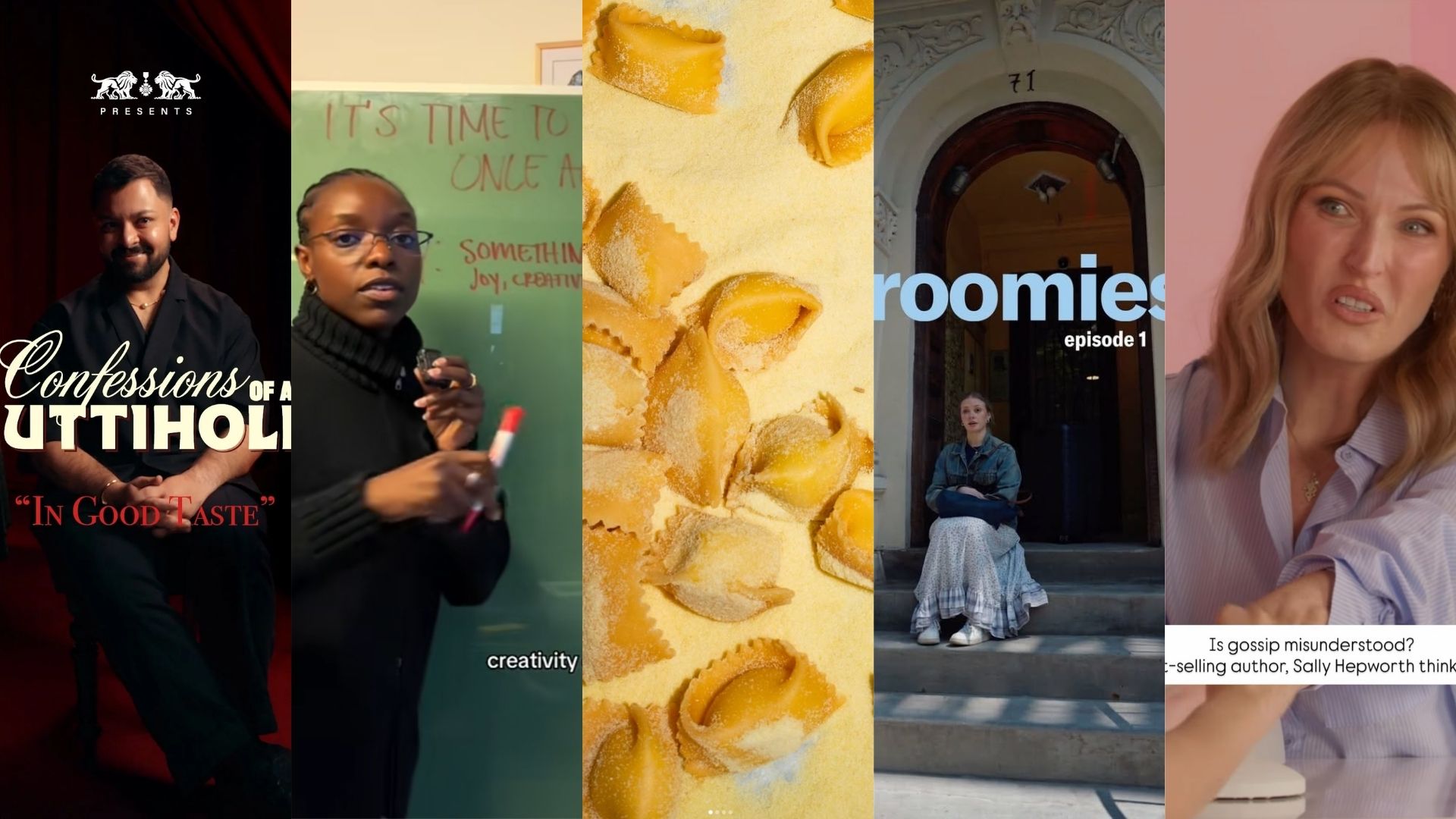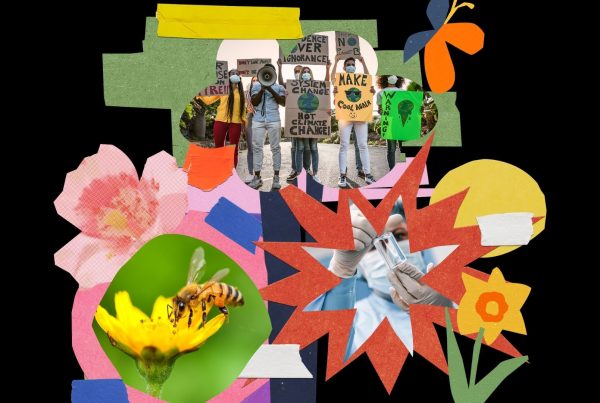Across industries, we’re seeing a rise in high-quality episodic storytelling. Think beautifully crafted mini-series that bring together strong visuals, emotional depth, and real storytelling craft. These projects feel less like marketing and more like worlds you want to step into.
This isn’t about a return to glossy advertising. It’s about brands realising that consistency and story can build a stronger emotional connection than a single viral post ever could.
For communicators in government, healthcare, and the not-for-profit space, this shift is exciting. The same techniques that keep audiences watching can help make your messages more meaningful, memorable, and human.
Here are five episodic social series we’re loving right now, along with ideas for how you could apply the same approach in your world.
Mutti’s Confessions of a Muttiholic
Imagine loving a tomato brand so much you’d get a tattoo of it. That’s the idea behind Confessions of a Muttiholic, WiredCo’s docuseries for Mutti. It follows the brand’s most passionate fans, celebrating their quirky devotion and genuine connection.
It’s part of Mutti’s When You Know, You Know platform, and it works because it’s human first, product second.
How you could adapt it:
-
Government: “Confessions of a Community Champion.” A series where citizens reveal what drives them to keep their town thriving, from a bushfire volunteer to a youth mentor to the local library’s biggest advocate. Each story becomes a love letter to civic pride.
-
Health: “Confessions of a Health Habit.” Short, human stories about people who’ve made small but powerful lifestyle changes, like quitting smoking, walking groups, healthier cooking, told with warmth, humour, and honesty.
-
Not-for-profit: “Confessions of a Lifelong Supporter.” Spotlight those who’ve stayed committed for decades, donors, volunteers, or campaigners, and what your cause has come to mean in their lives. A celebration of loyalty, purpose, and belonging.
Bilt’s Roomies
Roomies is a short-form comedy series that follows a group of housemates navigating life’s daily chaos. It’s fun, fast, and full of personality. The brand, Bilt, is woven in subtly through context, not scripting.
What makes it work is its sense of character. You start to care about the people, not the product.
How you could adapt it:
-
Government: “The Share House.” A fictional mini-series following housemates navigating cost-of-living challenges, recycling habits, or digital safety. Relatable, humorous, and rooted in real public messages which will be a soft entry point for policy topics that often feel heavy.
-
Health: “Waiting Room.” A recurring character series set in a GP clinic, where each visitor brings a new story, myth, or question. It uses gentle humour and conversation to normalise help-seeking and reduce stigma.
-
Not-for-profit: “The Changemakers.” A short, character-driven series that follows a group of friends each tackling a social issue in their own way; from climate anxiety to housing to loneliness. Part comedy, part inspiration.
@roomiesroomiesroomies Ellie from Ohio has 3 weeks to make it in NYC
♬ original sound - Roomies
OPI’s UnPolished
OPI’s UnPolished is a social-first video podcast hosted by Simona Lattuca. Guests sit down for a chat while getting their nails done, creating a relaxed, relatable space for honest conversation. It feels like friendship, not marketing.
It works because it’s simple and true to life. Some of the best conversations really do happen while you’re sitting in a salon chair.
How you could adapt it:
-
Government: “At the Counter.” Conversations between community members and frontline workers filmed in places where public life happens; libraries, post offices, community centres. Short, thoughtful chats that humanise public service.
-
Health: “In Conversation.” Honest, unscripted dialogues between clinicians and patients, exploring moments of vulnerability, learning, or shared humanity. Filmed simply, with care and consent, it becomes a space for understanding and empathy.
-
Not-for-profit: “At the Table.” A recurring talk series where people with lived experience discuss the realities of your cause (grief, recovery, inclusion, or advocacy) over a meal or cup of tea. Comfortable setting, real stories, zero polish.
Osteria Renata’s Various Vignettes
Osteria Renata’s short films are a masterclass in mood. They slow things down, capturing people, textures, and spaces in a way that feels rich and real. It’s cinematic storytelling that invites you to pause and appreciate craft.
For purpose-driven organisations, this is a reminder that impact doesn’t have to be loud. Sometimes slowing down and showing care through detail says more than words ever could.
How you could adapt it:
- Government: “Our Place.” A filmic portrait of a community through light, sound, and movement. Think early-morning light on main streets, bus drivers starting their routes, kids walking to school. No voiceover, just life.
- Health: “The Hands That Heal.” A visual ode to the quiet artistry in healthcare, the way a nurse folds a blanket, the touch of a hand, the morning rituals of care. No dialogue, just sound and texture.
- Not-for-profit: “Moments of Change.” Short, poetic films that capture small transformations, a child learning to ride a bike, an elder reconnecting with culture, a refugee finding home. Each one a sensory vignette about hope, patience, and dignity.
Olivia Unplugged ‘s Wellbeing Series
When you first see Olivia Unplugged on TikTok, you might think it’s just a creator sharing self-improvement tips. It’s only after a few videos that you realise it’s powered by the app Opal.
Each video offers simple, relatable advice on things like screen time and focus, and it works because it helps first and sells later.
-
Government: “Offline for a Minute.” A social-first wellbeing series tackling digital overload, rest, and productivity. Short, educational clips delivered in a human, creator-style format, ending with gentle encouragement to explore government wellbeing resources.
-
Health: “The Pause Project.” Quick, reflective videos from clinicians and psychologists sharing one practical wellbeing tip at a time, shot in their real workspaces, with authenticity at the core.
-
Not-for-profit: “Small Shifts.” Real people sharing one mindset, action, or moment that helped them through hardship.
@olivia.unplugged I can’t be the only one who had weird hobbies when I was a kid. Turns out, having a hobby is one of the healthiest choices we can make. #hobby #favoritehobby #innerchild #flowstate ♬ original sound - Olivia Unplugged
Why this matters for purpose-driven brands
All of these examples have one thing in common. They earn attention by being consistent, real, and beautifully made. They give people something to come back to, not just something to watch once.
For government, healthcare, and not-for-profit communicators, this approach can help you:
- Build trust through continuity and familiarity
- Explore complex topics through story instead of facts
- Sustain engagement over time, not just during a campaign burst
- Show care and authenticity through quality and craft
When you commit to showing up with care and consistency, your audience starts to recognise your voice and trust your message. They stop feeling like passive viewers and start becoming active believers in what you stand for.



